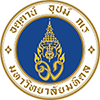Kitima Srisanga, Praewa Suthapot, Permkun Permsirivisarn, Piyarat Govitrapong,
Sumalee Tungpradabkul, Patompon Wongtrakoongate
Burkholderia pseudomallei is a Gram negative bacterium and the causative agent of melioidosis. Nonetheless, how virulence factors and pathogenic mechanisms are regulated have been elusive. In this study, we determined a role of polyphosphate kinase 1 (Ppk1) in regulation of quorum sensing (QS) and the sigma factor RpoS, and identified genes co-regulated by Ppk1, QS and RpoS. We find that Ppk1 positively controls autoinducer production and expression of rpoS transcript. Proteomic analysis identified 70 protein spots that are differentially expressed between B. pseudomallei wildtype and its ppk1-deficient strain. Within Ppk1regulated proteins, expression of 31 proteins are co-regulated by both RpoS and QS, whose functions of the majority of these proteins are associated with energy production and stress response. Moreover, expression of proteins involved in type III secretion system (T3SS) is also controlled by Ppk1. Quantitative PCR analysis confirmed that the T3SS genes bipB, bsaR and hrpK are down-regulated in ppk1 mutant. In addition, the ppk1-deficient strain exhibits defects in adhesion and invasion into human lung epithelial cells. Our work therefore reveals regulation of virulence factors and a regulatory mechanism of RpoS and QS by Ppk1, which altogether participate in gene expression control, and might be crucial for pathogenicity of B. pseudomallei.
Our work provides the link between Ppk1 and QS-RpoS axis, and the importance of Ppk1 in bacterial infection into host cells. Targeting accumulation of polyP has been shown to enhance bacterial sensitivity toward oxidative stress, to reduce bacterial colony formation and to attenuate biofilm formation. In addition, since several potential virulence factors are co-regulated by Ppk1 and QS, targeting QS system together with polyphosphate biosynthesis might provide a combinatorial therapeutic approach toward bacterial pathogens.
Source: https://doi.org/10.1016/j.jprot.2018.12.024
| BC investigator | |
 Asst. Prof. Patompon Wongtrakoongate Asst. Prof. Patompon Wongtrakoongate |
 Prof. Sumalee Tungpradabkul Prof. Sumalee Tungpradabkul |
 Kitima Srisanga Kitima Srisanga |

Miss Praewa Suthapot
Mr. Permkun Permsirivisarn |

